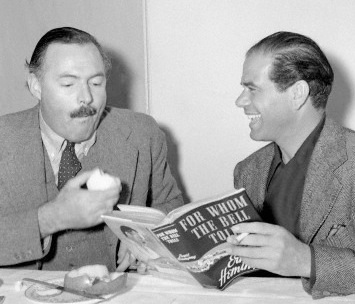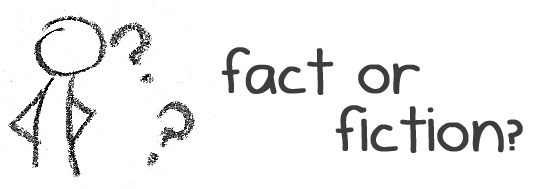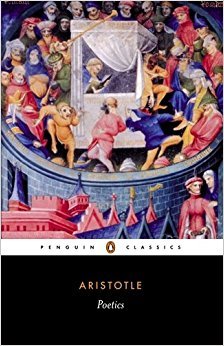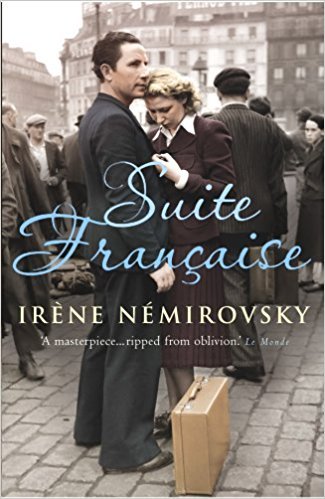Richard Harris's Blog, page 8
December 7, 2017
Note to Indie Authors: Brace for Hard Landing

Yep, that’s you landing ass-first.
Okay, enough is enough, powers that be. It started after reading CJ Walley’s “Amazon Studios; A Warning to All Screen Writers.” That was followed by “Amazon Is Punishing Authors for Running BookBub Promotions.” (I’d link to the article, but the link has been cut. No, I’m not kidding.) Yet the pièce de résistance came when I learned from Andrew Liptak that “Goodreads is changing its giveaways program, making it harder for readers to discover indie books.”
Consumers will know and love Amazon for its ridiculously low prices and crazy delivery times. Writers – and the publishing world as a whole – will know Amazon for the bully it is. I suppose the easy argument here is that you don’t become the juggernaut Amazon has become by playing nice. Just as every person on a reality TV show has been saying since “Survivor” gave the word a questionable meaning – “I didn’t come here to make friends, yo.” – so too does Amazon know that making enemies is of no real importance to them because they, like Walmart, have such a commanding market share.
But Goodreads? Come on! I’m particularly sensitive to the Goodreads Giveaways because I once benefited from it…when it was free! It was one of the few ways indie authors could promote their books to audiences they would otherwise (most likely) never reach.
For example, if not for the Giveaway, Aditi Saha (then the #1 Book Reviewer at Goodreads, now #7) would never have read my first novel, A Father’s Son, and I would never have had the chance to make her acquaintance and be honoured with a five-star review.
Was it not enough that I, as the author running the Giveaway, had to pay $40 in shipping (plus the cost of the book) to get Aditi a free copy to her home in India? I guess not. Now Goodreads wants to charge a hefty price (see above article for details), and an even heftier price if you want premium “shelf space” on their Giveaway page.
Really, this just seems like overkill on an industry that barely survives as it is. With Amazon’s apparent attack on BookBub, its alleged viciousness with screen writers on Amazon Studios, and now Goodreads effectively saying that if you want to reach a global audience, you’re going to pay through the nose (which will already be bruised, battered and bleeding), it’s going to be tougher than ever for indie authors to reach people outside their immediate friends/family/market, let alone make a few bucks along the way.
A sad day, really.


December 5, 2017
Goodreads Choice Awards 2017
One more list to include with my post from a couple of days ago, “‘Top’ Books of 2017,” and that’s the best books of 2017 as chosen by real readers (not the fake, imaginary ones).
What’s great about this list is that it’s got every conceivable category, from YA fiction, fantasy and picture books to fiction, science & technology and cookbooks.
Click here to see the full list on Goodreads.


You Can Judge A Man by His Book Covers
“No, seriously, Ernie, what’s the book really about?”
Okay, this is pretty freaking funny. Helena Fitzgerald (love her self-description: “non-fiction, fiction, public crying. blah blah internet. taller in person“) has her finger on the pulse of literature. She’s also penned a fantastic piece in @ElectricLit titled “20 Authors I Don’t Have to Read Because I’ve Dated Men for 16 Years: If you’ve spent enough time around dudes, you’ve BASICALLY read these.”
My only critique would be that the list is missing F. Scott Fitzgerald and that I’d put Jonathan Safran Foer on the opposite list: “20 Authors I Don’t Have to Read Because I’ve Dated Women for 16 Years.”
Aside from that one tiny blemish, the above piece is literary/dating gold.


December 2, 2017
“Top” Books of 2017 (Christmas Presents for Bookies)

Well, it’s that time of the year again. Time for Timer? Nope. Time for the “top” books of the year as chosen by random people, book buyers and famous newspapers. I’d like to offer my two pennies of insight here, but I only read a single book published in 2017, so I’m pretty much useless. Many and much apologies.
What I can do for you, however, is shorten the process of tracking down this past year’s “best” books. (I know, I know. Lots of italics.) Why are they the BEST! books of 2017? Opinion. Nothing more, nothing less.
That said (and in case you’re shopping for Christmas books for the bookies in your life), The Hate U Give by Angie Thomas seems to top a few lists and enjoys an unheard-of rating on Goodreads, topping out at 4.6 (for more than 1,000 reviews). The Power by Naomi Alderman also seems to be riding high on several lists.
Here’s the Indigo list for 2017. Here’s the Amazon bestseller list for 2017. Here’s The New York Times list for 2017. And, apropos of the image I used for this post, here’s the Los Angeles Times best fiction list for 2017.


What’s Your Story? Short Prose & Poetry Competition
If you’ve got two pages of poetry or 1,300-1,500 words of prose (and qualify as a resident of Toronto), get ready to submit!
The Ontario Book Publishers Organization is pleased to announce that submissions are being accepted until January 15, 2018 for the What’s Your Story? Short Prose and Poetry Competition for Emerging Writers.
This writing competition is part of What’s Your Story?, a series of events that celebrates the literary communities in four different community hubs: Etobicoke, North York, Scarborough, and East Toronto. In the spring of 2018, literary events will be held in each of these neighbourhoods featuring two winning emerging authors and their works (along with two established writers). There will be a total of eight winning emerging authors and eight winning established authors who have written works inspired by one of the four community hubs: Etobicoke, North York, Scarborough, and East Toronto. Short prose submissions must be between 1,300 and 1,500 words and poetry submissions must be a maximum of two pages.
Click here to learn how to submit your story for this contest.


November 29, 2017
Can We Believe Anything We Read?
In a piece for the Huffington Post titled “Why Does Goodreads Tout Fake Quotes?” Lev Raphael takes aim at the most popular George Eliot quotation on the site:
It is never too late to be what you might have been.
According to Mr. Raphael, and apparently verified (or not, as seems to be the fact in this case) by more rigorously fact-checking people/sites, George Eliot never said or wrote this statement. Per the article:
“I poked around the Internet, and though it’s inescapable, there’s no attribution whatsoever. Nobody who knew her records it as a comment she made; it’s not something she wrote in her diary; and it doesn’t appear anywhere in her published work or letters.”
Now, I’m not personally blaming Goodreads – the site must have more than a million quotes listed on its site, if even a cursory glance is anything to go on – but in an age of “alternative facts,” it certainly does raise an interesting question: If educators have been scouring Wikipedia since the site’s launch in 2001 to check for glaring cases of plagiarism on the part of students, do we as readers/Internet users need to be equally as when referring to well-established (and generally trustworthy) books/websites?
I suppose the easy answer is yes. Of course you should. But that’s when things get murky and discombobulated and confusing and weirdly weird. If Penguin Classics publishes Aristotle’s Poetics, am I supposed to email the director of the non-existent Museum of Aristotle in Athens and have him or her confirm the authenticity of said statements?
It’s all Greek to me?
That might prove futile, because as our good friends at Wikipedia point out:
The extant works of Aristotle are broken down according to the five categories in the Corpus Aristotelicum. Not all of these works are considered genuine, but differ with respect to their connection to Aristotle, his associates and his views. Some are regarded by most scholars as products of Aristotle’s “school” and compiled under his direction or supervision.
Hmm. Now we’re really in a jar of pickled pickle brine. Really, if we can’t trust Penguin to be quoting Aristotle, who on earth is safe to be quoting? Perhaps the answer is not as easy as we once thought, and at the very least we can thank Kellyanne Conway for one thing: putting this debate square in the cross hairs of public debate.


November 28, 2017
It’s Not Alright (But It’s Okay)
The subtleties of language. They count. Big time. In a similar way, anyone who thinks that math doesn’t matter, I refer you to How Not to Be Wrong: The Power of Mathematical Thinking by Jordan Ellenberg, who explains ever-so eloquently the ways in which math permeates our everyday lives – in a cool and very necessary way.
When it comes to everyday language, however, I’d refer you to a piece by Jon Westenberg, who’s got something important to say about the matter, specifically, “.”
The moral of his story can be summed up as follows:
If your startup fails? It’s not alright. But you can get through it.
If your freelance career bombs? It’s not alright. But you can get through it.
If your relationship comes to an end? It’s not alright. But you can get through it.
If your dreams burn out? It’s not alright.
But you can get through it.
It’s straightforward, simple, and to the point. Me likes, in the same way that Robert Fulghum writes about stuff in From Beginning to End.
Unfortunately for those of us living in North America, and who use English as a first language, we’ve become knee-jerk mollycoddlers. You didn’t finish the race? You failed at your attempt to make toast? Your manager doesn’t like you because you’re too nice? That’s okay. You tried your bestest! Here’s a Last Place ribbon to hang on the wall.
For me, the interesting part about this article by Mr. Westenberg has to do with language. Any douchebag can pick up a few swear words in a foreign language, but one of the hardest things to do – naturally and politely – is to learn the right words and expressions in times of great distress or hardship.
And one of the biggest pitfalls second-language learners make is to ask their teacher/friend/native speaker of said language, “How do you say [insert word/phrase from English] in [insert language]?” Instead, you should be asking, “What would you say in [insert language] in this situation?” The difference may seem subtle, but then so is language.
Another complication lies with culture. If you’re learning Arabic online in Des Moines, Iowa through Rosetta Stone, for example, what makes you think Arabic speakers in Egypt say the same thing in the same situation as they do in Iraq?
But, as usual, I’ve digressed. Jon Westenberg was not writing a linguistic analysis of English speakers in Australia, he was merely pointing out that sometimes the truth – as hard as it is to hear – can go much further to helping someone in their time of need than mollycoddling (love that word) a person who’s struggling through a rough time. There are simply occasions when “I’m really sorry. That sucks. It’s not alright.” can do more to help restore one’s bruised ego than any flowery words or feel-good idioms.


November 26, 2017
Quote of the Day
“But what is certain is that in five, ten or twenty years, this problem unique to our time, according to him, will no longer exist, it will be replaced by others…Yet this music, the sound of this rain on the windows, the great mournful creaking of the cedar tree in the garden outside, this moment, so tender, so strange in the middle of war, this will never change, not this, this is forever.”
― Irène Némirovsky, Suite française
“The French Suite” is a special book for a few reasons. To begin, Irène Némirovsky wrote a beautiful story set in France during the Second World War. Second, her prose is eloquent, as can be evidenced from the above QOTD. Third, we’ll never know the “real” ending, as Némirovsky only completed two of the five stories planned for this novel before she was rounded up by the Nazis and sent to Auschwitz, where she was murdered. Fourth, by some miracle of you know who, “The notebook containing the two novels was preserved by her daughters but not examined until 1998. They were published in a single volume entitled Suite française in 2004.”
I wrote about another brilliant work that survived a totalitarian regime through samizdat, The Master and Margarita, but there’s yet another book I read that somehow squeaked out from under intolerant noses, Life and Fate by Vasily Grossman. Per the Wiki entry on the book:
Life and Fate, the sequel to For a Just Cause, was written in the aftermath of Stalin’s death. Grossman submitted it around October 1960 for potential publication to the Znamya magazine. At this point, the KGB raided his apartment. The manuscripts, carbon copies and notebooks, as well as the typists’ copies and even the typewriter ribbons were seized.
In 1974, a friend and a prominent poet Semyon Lipkin got one of the surviving copies put onto microfilm and smuggled it out of the country with the help of satirical writer Vladimir Voinovich and nuclear scientist Andrei Sakharov. Grossman died in 1964, never having seen his book published, which did not happen in the West until 1980.
It would seem that in these cases there is much truth to the idiom The pen is mightier than the sword.


November 25, 2017
International Translation Blog
There’s a (relatively) new translation blog in town, and its name is the Biblioasis International Translation Blog. Biblioasis is a small Canadian press and bookstore (@biblioasis and @BiblioasisStore, respectively) based out of Windsor, Ontario that is doing exciting things on all fronts: literary prose, poetry, nonfiction, and translation. Per the blog:
When the Biblioasis International Translation Blog was created in 2012, it was with the ambition of becoming an online forum for literary translation in Canada and beyond. Although we got off to a decent start, with feature articles from the likes of Douglas Glover, Alberto Manguel, Scott Esposito and others, a litany of minor priorities—running a press? editing a magazine? launching a brick and mortar bookstore? teaching university courses?—kept getting in the way. Go figure. Finite resources, limited energy, and ambition make for a precarious dance. We’re still working out the kinks in our steps.
If you enjoy reading stuff from different languages or simply discovering new voices from other cultures, check out this blog. Lots of great material to look over, and Jesse Eckerlin is doing a great job on a limited budget/schedule.
Also, here’s a link to the Biblioasis blog and the Biblioasis website if you want to learn more about them.


The Mozart of Chess & Brain Chunking

I may play you like a bishop, but I’ll treat you like a pawn with my Nordic Jedi mind tricks.
This story by Manoel Cortes Mendez titled “Learning from a Prodigy: The Science Behind the Feats of the Greatest Chess Player of All Time” has it all: a suave Scandinavian kid, chess, classical music references, the benefits of sleep, how to piss off Garry Kasparov, and so much more!
Called the Mozart of Chess by some, Magnus Carlsen is now seen by pundits as the greatest chess player to ever play the game. He was a Grandmaster by 13 years old and ranked No. 1 by the World Chess Federation by 19. The first time Carlsen played legendary Grandmaster Garry Kaspoarov, the sulky Russian eked out a draw, but stormed off stage because deep down he knew he had lost.
Anyway, there are many things I took away from this article, one of which is dedicated to Dr. Dinardo, who knows from her last post that there is a fine line between starving your distractions and feeding your focus when you want to learn in the most effective way possible. As Mr. Mendez, the self-described “software engineer, chess aficionado, and amateur writer,” puts it:
“Indeed, research has shown that effective learning requires the brain to alternate between two complementary modes of operation: the focused mode and the diffuse mode.”
Here’s how he breaks it down:
“The focused mode involves concentrating intently on the task at hand. This mode is ideal for absorbing new information and kick-starting the chunking process. It is the mode students engage, or at least should engage, when they study a new subject.
The diffuse mode, on the contrary, involves relaxing the mind. We switch to this mode when we mentally walk away from any specific focus and instead let our thoughts wander. Sleeping or going for a stroll are prime examples of diffuse-thinking activities. It may seem counterintuitive to imagine that this type of mental state could contribute to the learning process, but as it turns out, it is an essential ingredient.”
I can hear the reader now saying, somewhat vociferously, That’s hunky-dory, man, but what about the friggin’ brain chunking? I wanna be chunking with the best of ’em!
“In neuroscience, the process that involves cementing little by little actionable bits of information into memory is called chunking. And that’s precisely what Carlsen does: he chunks chess moves. And as these chunks start building on one another, they transform into tactics; tactics that in turn become strategies; and strategies that ultimately almost always culminate in a checkmate.
Likewise, when we study a new subject, our brain tries to digest the information by converting it into mental chunks. But these chunks fade over time. In order to maintain them, we must revisit the material regularly. As the chunks are strengthened, we may space out our revision sessions further apart. With time and practice, chunks will find a permanent place in our long-term memory.”
Ultimately, the simple lesson from this piece comes down to the following for me:
“Carlsen encourages players to vary the conditions of the game. Play competitively and play for fun. Play online and play face-to-face. Play against people of different origins and with different playstyles. Simply put, seek diversity in chess.”
I’d like to say this is an excellent prescription for writing well (many of the finest authors write in a variety of genres), but the reality is that this applies to life, too. After all, variety, as they say, is the spicy spice of life.













